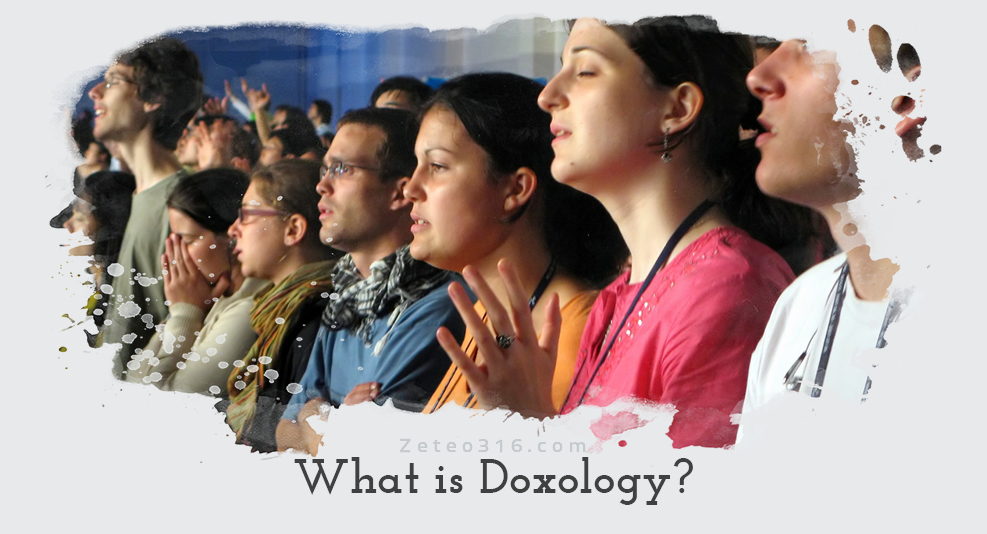
What is Doxology? I’d read the term often. It frequently comes up in theological literature and blog articles. I recall looking the term up and then promptly forgetting its meaning a day later. That says something about me, I guess.
What is Doxology? According to GotQuestions:
The dictionary defines doxology as “an expression of praise to God, especially a short hymn sung as part of a Christian worship service.” The word doxology comes from the Greek doxa, (“glory, splendor, grandeur”) and logos, (“word” or “speaking”). Most doxologies are short hymns of praise to God in various Christian worship services, often added to the end of canticles, psalms, and hymns.
In summary, Doxology is “an expression of praise to God.” While Christians (such as me) may not recognize the term Doxology when they come across it, we should be naturally living it.
Question one of the Westminster Catechism asks: “What is the chief end of man?” It answers: “Man’s chief end is to glorify God and to enjoy him forever.” Glorifying God is inexorably connected to Doxology.
In his book A Body of Divinity Thomas Watson devotes some time in the Introduction to discuss Man’s Chief End. He writes that glorifying God consists of four things: 1) Appreciation; 2) Adoration (or worship); 3) Affection; 4) Subjection.
In his commentary on Ephesians, Ian Hamilton notes that the Apostle Paul expressed a “Soaring Doxology.” Hamilton writes:
The language God’s Word uses to describe the state and privilege of a Christian is staggering. What God has done for His people in Christ and is continuing to do so through the Saviour’s high priestly ministry (Heb. 7:25) is ultimately beyond all human telling. The gospel cannot fully, or even fitly, be explained in all its divine grandeur and glory. That was Paul’s conclusion as he reflected on the grace of God in another of his soaring doxologies, Romans 11:33-36. He is lost for words and out of his depth. (pp 121-122)
Oh, the depth of the riches both of the wisdom and knowledge of God! How unsearchable are His judgments and unfathomable His ways! Rom 11:33
That Paul felt out of his depth in expressing his Doxology is especially significant considering what he wrote in 2 Cor 12. Paul was privileged with a remarkable conversion, and many overwhelming experiences which he was not able to adequately express. No wonder he felt out of his depth.
Some time ago I listened to Paul Washer’s conversion testimony and experiences as an early Christian. He spent a lot of time asking God to reveal Himself. Finally, one night, Washer had an extraordinary experience of God which he hasn’t been able to adequately express. But he affirmed to his audience that, after this ineffable event, God is more real to him than they are.
Washer is famous for his passionate doxology. And no wonder! It was also because of his recommendation that I read Iain Murray’s book “Pentecost Today?” There we find many examples where heaven reached down, touched individuals and changed them – for example, Jonathan Edwards.
In the chapter “Soaring Doxology”, Ian Hamilton goes on to say that perhaps: “our backwardness in prayer is because our minds and hearts are not as overwhelmed and captivated by God’s greatness and goodness as they might be.” He points to the example of Peter’s walking on water when his eyes were fixed on Jesus.
At the end of that chapter, Hamilton concludes:
Worshiping the Triune God, the God of our salvation, is the church’s highest and holiest privilege in this and in the life to come. (p 129)
May we all pray for the ability and gift to worship God as He is intended to be worshiped!
Maranatha!
